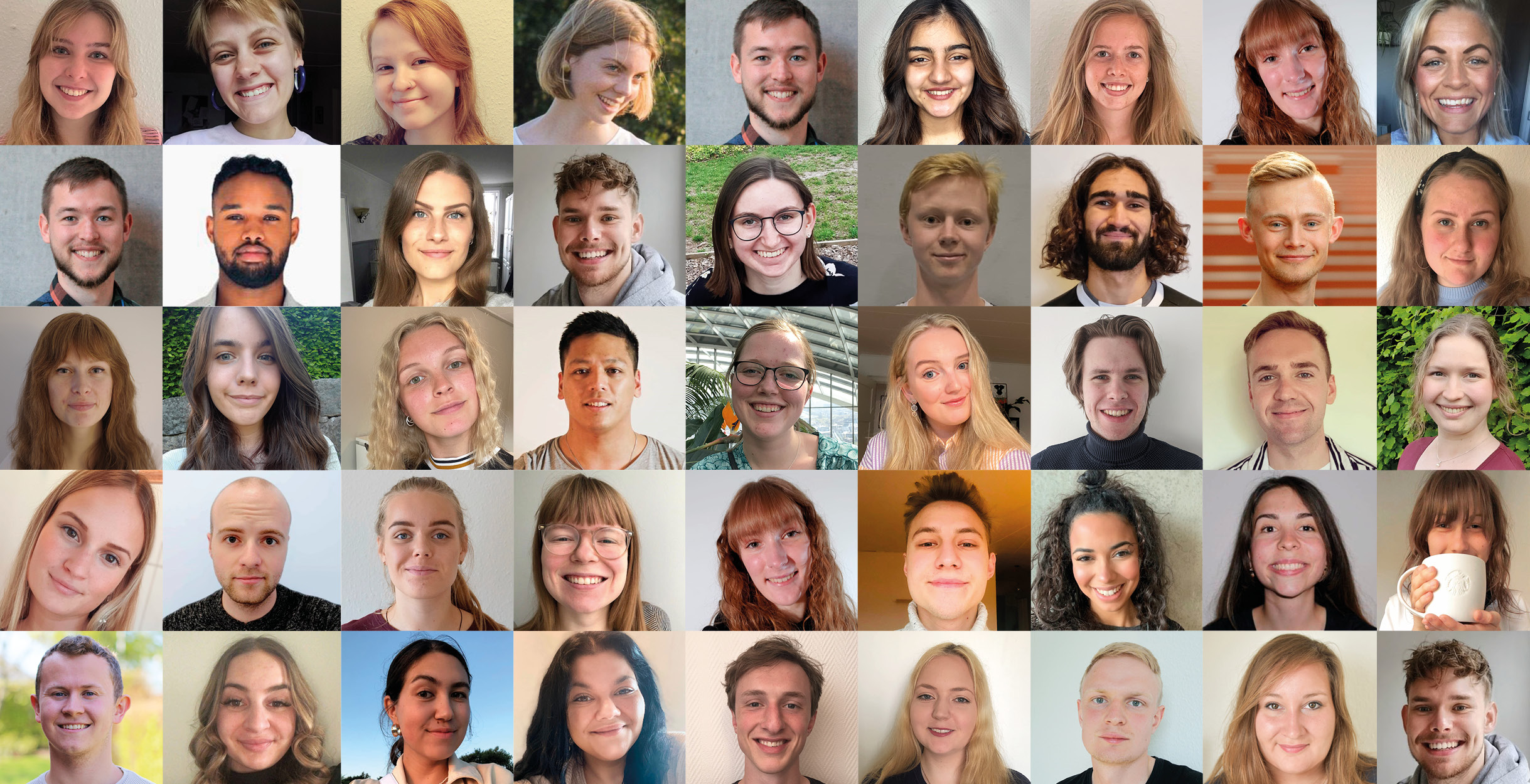Your choices along the way determine your academic profile
Part of your study programme is predetermined and forms the core building blocks of your specific study programme.
Throughout your education, you will have the freedom to make small and large choices. This gives you the opportunity to develop and fine-tune your academic profile:
- Are you looking for a specific elective that sharpens your profile in a particular way?
- How do you design the tasks you define yourself – for example, the BA project?
- Would you like to put yourself to the test in a project-oriented course?
- Would you like to go abroad? And would you like to study at a university or do an internship while you’re there?
- Do you prefer to work alone or with others? And are the others like yourself, or do they have completely different academic approaches to things?
Your choices along the way determine your competences and skills. Students from this education will naturally have a lot in common, but they will also graduate with different profiles since they have used their freedom of choice differently.
At mitSDU you can find out more about the elements and options that are included in the bachelor programme.
You will become an academic
When you study at the university, you become an academic. An academic has several fundamental methods to solve different tasks. We often call it “the academic competences”. No matter which education you choose, you will be able to use these competences in your future work life.
When you work with the subjects you have chosen, you will attain the academic competences through the academic method. And you will do exactly that with this bachelor’s degree.
Through your study programme, you will gain the following general academic competences:
- the ability to delineate, define and analyse an academic issue using relevant academic theories and methods
- the ability to systematise complex knowledge and data as well as select and prioritise matters that are significant to the topic
- the ability to critically evaluate the various theories and methods of the subject
- the ability to use terminology precisely and consistently as well as be able to enter into dialogue and argue a point on a fundamental theoretical basis
- the ability to take a critical stance on sources and document them
- the ability to communicate academic issues and solution models so that they are relevant and understandable to different target groups
- the ability to handle complex and development-oriented situations and enter into a collaboration, including being able to receive and give constructive criticism
- the ability to work independently with discipline, structure and in a goal-oriented manner, including being able to meet deadlines and formalities
You can read more about your general academic competences in your programme regulations on MitSDU.
Traditionally, it was almost automatic to go from a bachelor’s degree to a master’s degree, but things are different now. More and more people are entering the labour market with an academic bachelor’s degree (and the number is expected to increase in the future).
Perhaps you want to try your hand in the job market after your bachelor’s study programme – and use the experience you gain from this if you decide to apply for a master’s degree later on.
Perhaps you will choose to apply for jobs as well as a master’s degree programme while completing your BA.
There are 1000 paths to a good academic career. The most important thing is that you address the choices you have to make – and choose what makes sense for you.
What bachelor graduates have learned - and what are they doing out in the big wide world
Below, you can read more about what graduates of the bachelor’s study programme have taken with them and how they are contributing in the world. The lists are by no means exhaustive – you will find plenty of graduates who have used their degree programme to learn other things and created a future for themselves that they could never have imagined.
